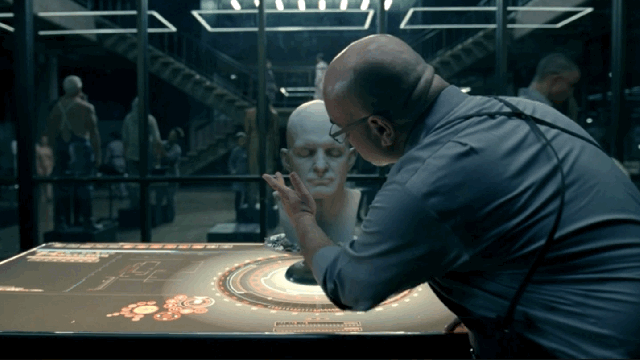We don’t know all the secrets of HBO’s hit series Westworld, but we do know the park inside the show is essentially just like a video game. There are quests for the players to go on, NPCs to interact with (the robot “hosts”), the guests discuss various playstyles of interacting with the park and even get “upgrades”. The people behind the scenes create the narrative, program the hosts and control the environment, crafting the experiences for the players. So what do the designers who actually make video games for a living think about the show?
We talked to people who’ve written and designed Batman, Walking Dead and Hulk video games about Westworld‘s vision of a massive playable fiction, and more importantly, how the show mirrors their own experience building a world and crafting an experience. Read on to see what they had to say.
Note: These interviews took place before episode six.
At what point did Westworld start to feel like a show riffing on the notional space that we commonly associate with video games?
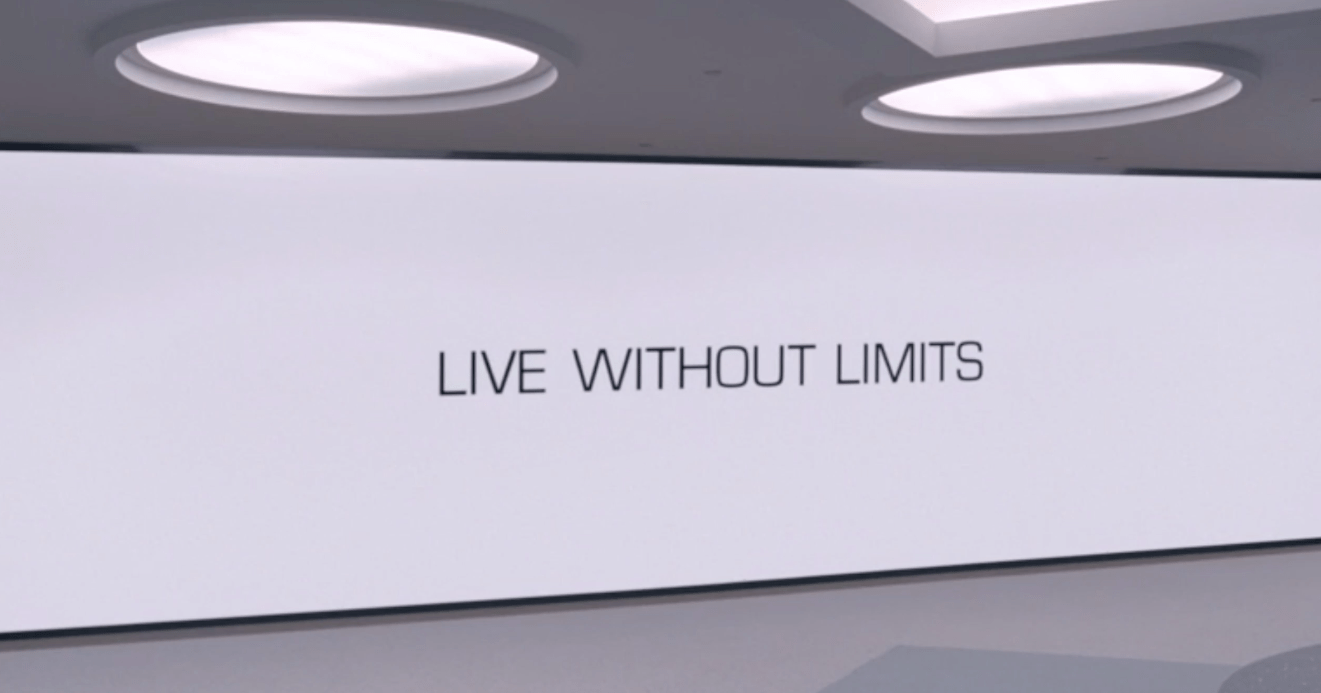
Walt Williams (writer on Spec Ops: The Line, The Darkness II):
I had zero idea going in that, at its core, Westworld was going to kind of be a show about game development. And, during that pilot episode, I was torn between just loving the stories happening on screen and just being infuriated by all of the PTSD of development that was just flashing through my mind. Seriously, every time the writer character comes on-screen, I’m just like ‘Oh. Oh, God. I want to punch myself in the face.’ Because he’s like every terrible writer I’ve ever worked with, and also me, on my absolute worst days. It’s so bad. I’m totally this guy and I hate him but I also love him.
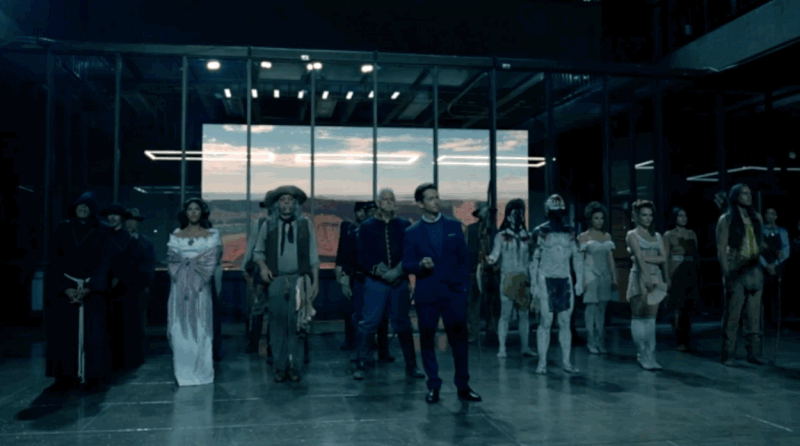
And so, from the pilot episode on I was just absolutely hooked, because, I often find that Hollywood is much better at exploring the philosophical questions behind video games than video games are. When they actually take the time to learn what video games are. Half the time they don’t, and those episodes and films are terrible. But when they actually do their homework and really begin to understand video games and a lot of the different mechanics and stuff that we use… they explore them better than we [in the games industry] tend do.
Chris Avellone *writer/game designer on Planescape: Torment, Star Wars: Knights of the Old Republic II, Alpha Protocol, Wasteland 2):
For me, it was episode two, and the means by which narrative designers feel their imposition of story is more important than player experience — which Anthony Hopkins/Dr Ford highlights quite clearly when exposed to the garbage-y narrative direction of the lead writer and how the guests/visitors will react to the new content/DLC:
“[The visitors] already know who they are. They want a glimpse of who they could be. The only thing your story tells me, Mr Sizemore, is who you are.”
It’s one of the most important things to disassociate yourself with in game writing (and game design). The moment you start dictating content/themes/story vs allowing the player to be a participant in the story and carve their own path, you’re doing the player a disservice.
Sean Vanaman (co-founder, Campo Santo design studio; lead writer on season one of Telltale’s The Walking Dead, Firewatch):
For me, it was the moment they hit on the idea of storylines and guests going off the beaten path and how much of that the story could take. That is pretty much my entire life for the past eight years and, frankly, pseudo-conscious flesh-robots would make my job much easier.
Eric Holmes (writer/designer on Incredible Hulk: Ultimate Destruction, Batman: Arkham Origins, Gears of War 3, Battlefield 1):
Pitching a storyline was not the greatest moment on the show, but it did connect to the development experience.
What do you think the show gets right and wrong about game design?
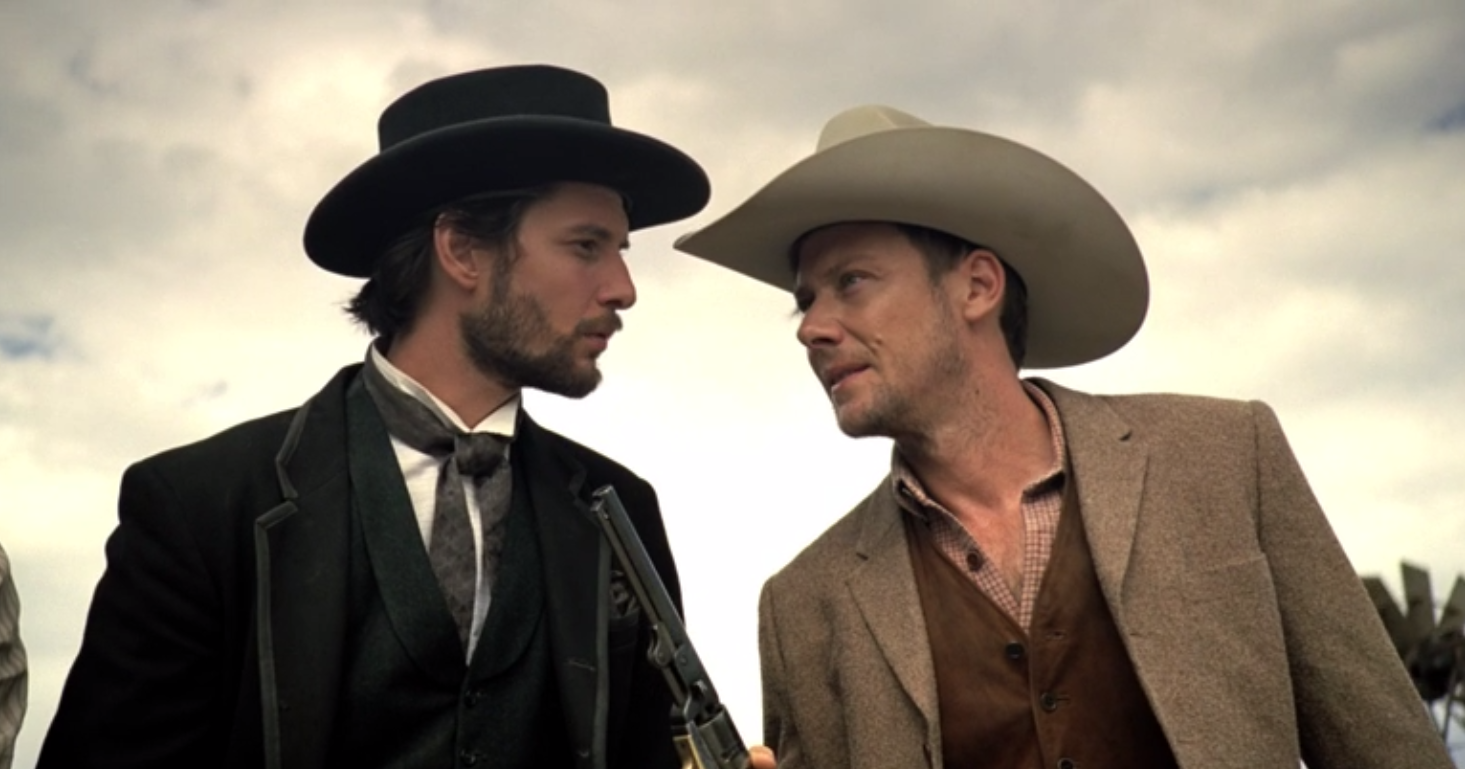
Walt Williams:
I think it gets a lot of the personalities of the developers right, for sure. Like in the past two episodes, Anthony Hopkins’ character has really kind of opened up with his ego. And it’s a personality that I’ve seen time and time again. In the first two episodes he’s very humble and almost approachable. [He’s meeting] these people halfway and there comes a point where he’s just like, ‘No no no, you see, until now we were just having a conversation. Now you’ve fucked with mine, so now I have to fuck with yours. And I’m God here.’
You’ve got the corporate woman who is clearly kind of in this interesting publisher role, but you also have these recognisable personality types in these other roles. Jeffery Wright’s character has this very quiet quality to him that is very reminiscent of my experience with programmers and people who were spending their time really working and digging in with the code and not necessarily the most social.
You’ve got the guys on the lower levels who are doing their QA and repair jobs, but secretly thinking they should be the guys on the upper levels. In the industry, we always get pissed at that guy, ’cause we’re like, “Hey man, just do your job. I know that you’re trying to impress people and show that you can do this, but just do your job.” But I also get being the guy down at the bottom wanting to prove that you can do the other thing. The way that they worked that in the show was much better than most people tend to go about it in the industry. Whereas that guy was just like, “I’m actually trying to learn to do it first,” instead of just being like, “I know how to do it and you all need to listen to me.” Which we see a lot of.
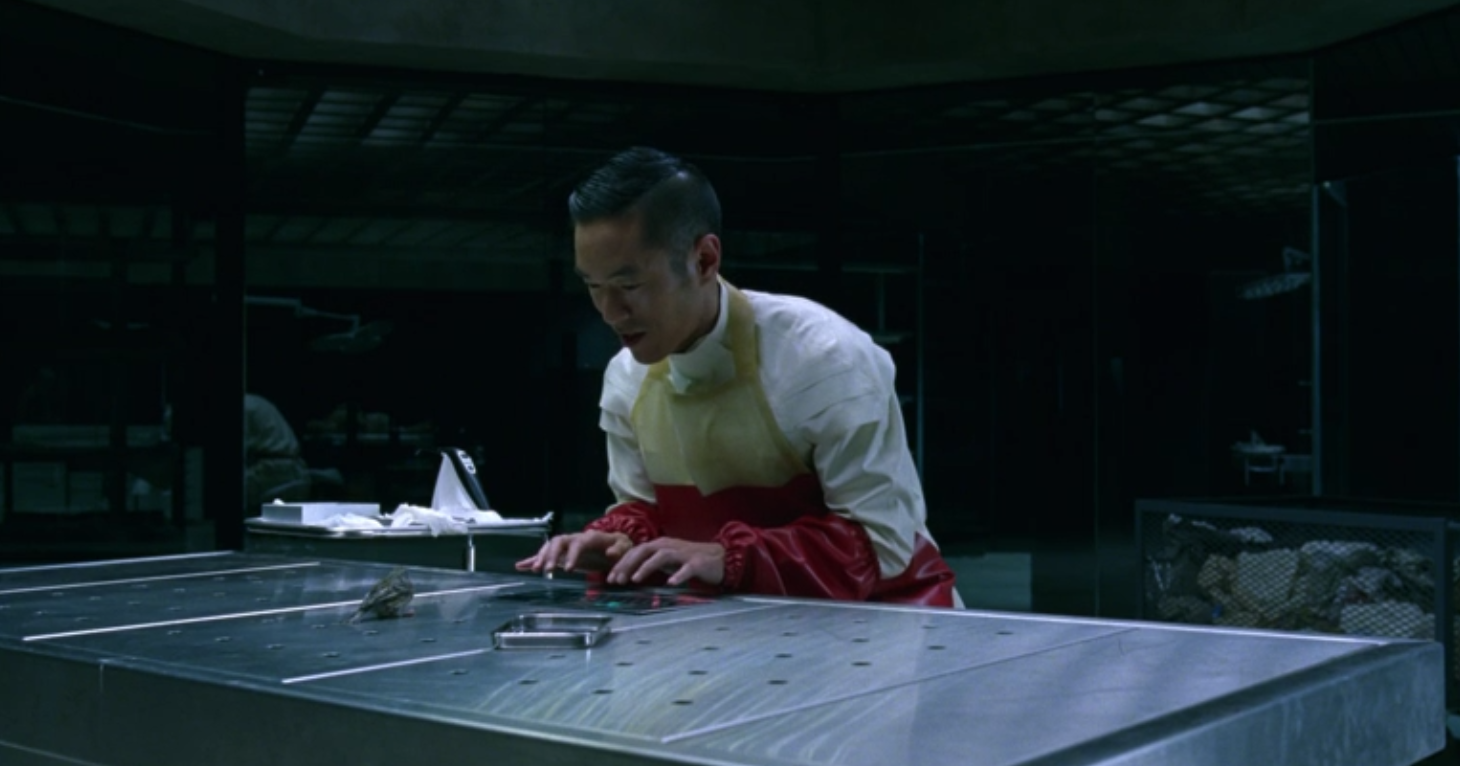
The main starting town is similar to, albeit on a much more sophisticated level, to a lot of things that we see people try to do in games like Skyrim. Those games will have specific non-player characters (NPCs) that have a schedule that they’re moving on. Westworld mimics that kind of pre-controlled scripting of characters to make them feel more alive.
Chris Avellone:
It makes me sad about how obvious our developer quest triggers must seem to a player, and it’s evident five minutes into the theme park (thug “bumps” into you, bounty is being offered for an outlaw, beautiful girl by horse drops one of her belongings… and then in episode two, the obvious lure of the old miner being flung from his horse in the middle of the street, et cetera, et cetera). I cringed at each instance and wondered if maybe we insult the player’s intelligence too much with some of our triggers.
That said, the show gets the “players want to do what players want to do, they all don’t want to be strung along, they want to explore who they can be” aspect correct, and I agree with their argument. Also, they get Easter eggs right (so far).
Sean Vanaman:
I don’t know how fair it is to say “it gets this wrong” because it’s a fiction. Westworld is whatever Lisa Joy and Johnathan Nolan want it to be. I love that they really don’t show you much about the nuts and bolts of how the park runs unless it’s important to the story. I think that’s great. We get so goddamn obsessed with the rules of the fiction, what it gets right, what it gets wrong, that it’s so refreshing for a high-budget show that is aiming to hit the enthusiast/comic-con/gaming audience to basically say, “Fuck lore and rules, we’re here to entertain you.”
That said, I would say it gets right all the details — how Anthony Hopkins’s character makes a distinct point of the tiny discoverables within a game experience. I love that so much. It’s not about the big boss fight, it’s about the small stuff you didn’t notice at first. That’s where the magic is. Laura Hudson just wrote a soul-crushing piece about this in the Campo Santo Quarterly Review and I love that that notion was underlined by the show.
Eric Holmes:
Honestly, the best parts of the show for me is the sense of a bleak mystery with a great number of ethically challenged possibilities. I think we like to consider the possibilities of just how many people in the park are artificial — it could be everyone up to Hopkins’ Ford. Or it could include him.
What game design question do you have about the park, like a thing they couldn’t possibly do in real life?
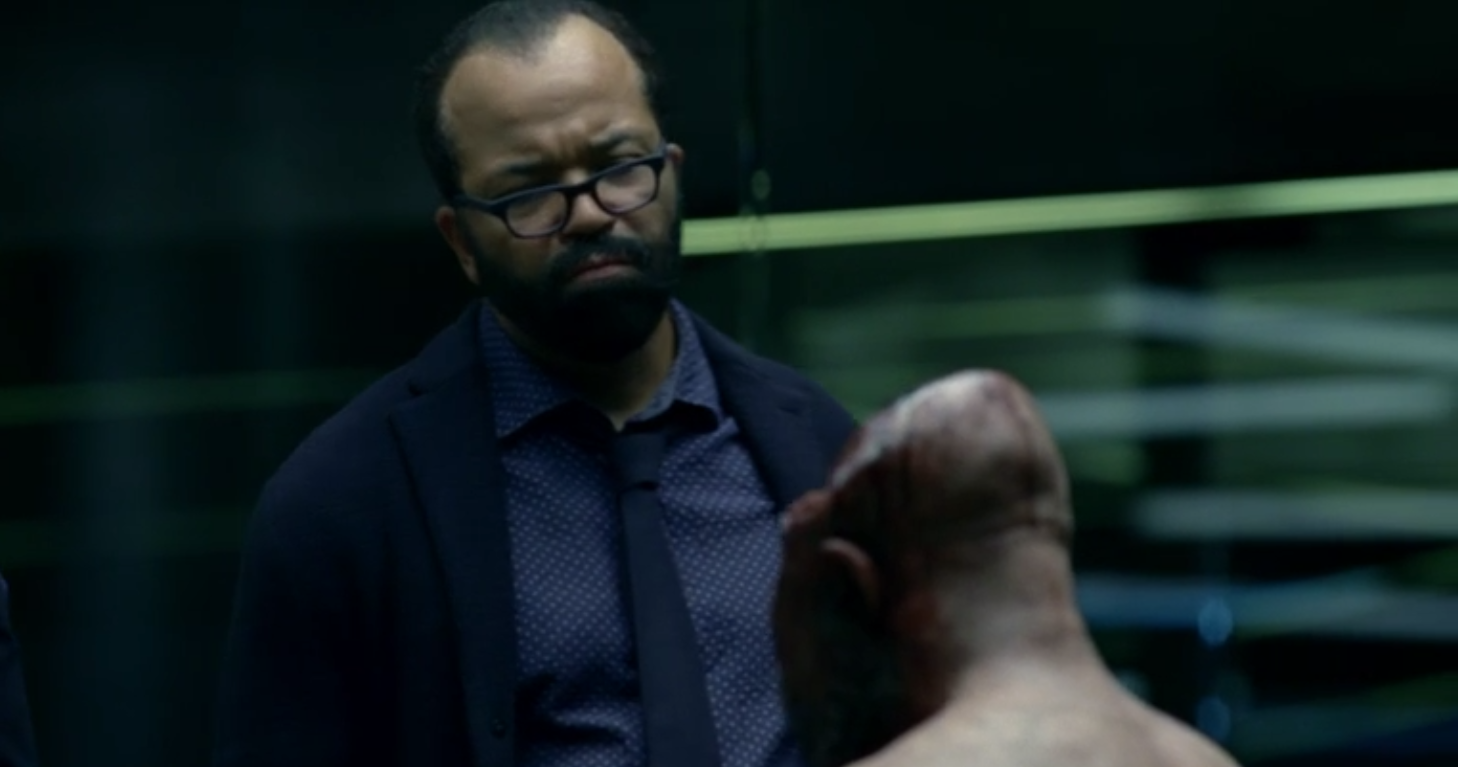
Walt Williams:
Gosh, there’s a lot. They have been so quiet on a lot of rules. I don’t know how they’re resetting things. It’s a bit tricky to figure out exactly how much inside the park is correct because right now they’re still playing loose with time. According to some of the theories I’ve seen, there is a possibility one of these plot lines is happening 35 years in the past. But, you’re definitely seeing it getting reset in the first episode. So, is it something like every 24 hours there’s a narrative cycle reboot? Are they waiting until the humans are asleep? Do they have a brief period where they don’t let anyone into the park? Or when there’s no one in a certain area, then they reboot it? I want to know what their narrative loop cycle is.
As a writer, I’m always going to draw to the narrative stuff. Also, they do a lot of damage to their hosts and I’d like to know how they get them up and running so quickly again. It seems as if they’re built with all these organs that are analogous to human organs. Like, it seems like they just go in, pull out a bullet, wash ’em up and stick ’em back out. I’m curious about what the actual technology behind that is. But, really, the narrative loop is the big question. I don’t really understand how they’re resetting things in the park.
Chris Avellone:
Mostly the production values. Cleaning and tending all those hosts would be pretty exhaustive, resource-wise. The selective gunfire on hosts vs guests (and the fact you can technically get “shot” even as a guest) felt a little tricky. Also, the transition into the park I didn’t 100 per cent buy, even though I found it interesting.
Sean Vanaman:
Man, I don’t give a shit. I’ve spent so many years being told by game designers, “Well, you gotta do X and you can never do Y and Z is impossible.” The notion that The Walking Dead didn’t have puzzles or real win conditions made some traditional game designers I know go absolutely bonkers and, in the end, I think that game was pretty good. My curiosity about the design of the park is squelched by the fact that my disbelief as a show-watcher is totally suspended. That rarely happens. So, if I was actually in the show and could ask the designers of the park questions they would (in this fantasy) all be about the steps they take to suspend disbelief.
Eric Holmes:
My biggest unanswered question is how they can modulate violence between guests. So far, that seems like a very difficult thing to do when knives have to be able to cut and people can get liquored up; the question hangs in the air. I hope they have a satisfying answer for this tucked away somewhere inside the show. Accidental violence, even. Shooting someone point blank still generates an explosion out of the end of a gun, even if the projectile is somehow ineffective. But maybe I’m overthinking! As a designer, I love to explore user edge cases and figure out what appear to be rules. This is one I’m always trying to find the edges of.
Emergent self-awareness: bug or feature?
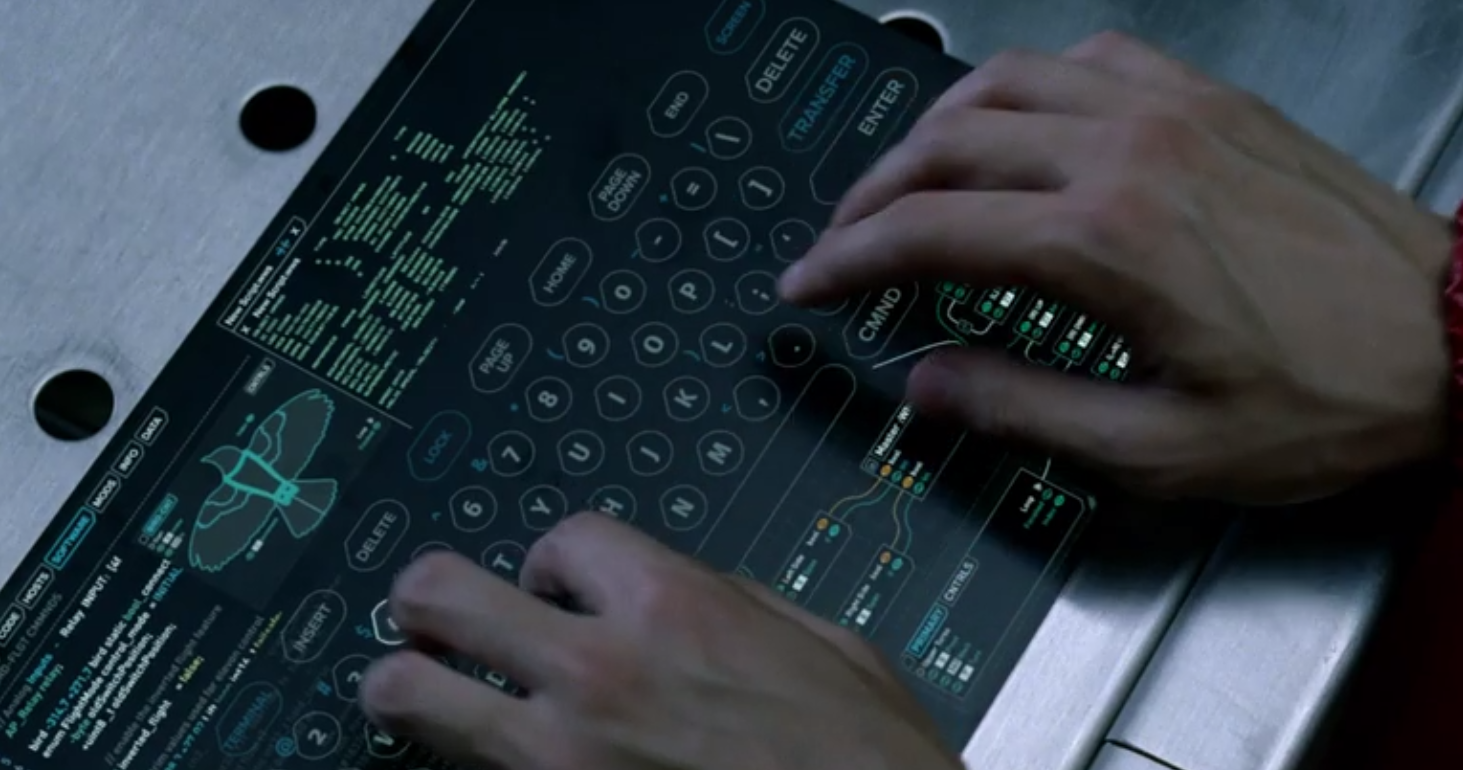
Walt Williams:
I think it’s both. I think it’s something that has been designed into the hosts that is working like a bug. They mention at the beginning that Anthony Hopkins has programmed these new features that allows them to do these more personalised movements that tap into their memories. I think it’s also something that this Arnold character inserted that is accessing some kind of bugged code in their programming memories. In game design terms, it’s like something that got coded into the game and then decided, “We don’t want that in the game.” So instead of deleting it, they just blocked off the code. And then a weird string that got added in later is glitching something and activating that blocked-off code into the world or into the AI. It’d be a little like [GTA: San Andreas’ infamous] Hot Coffee content, if somehow half of Hot Coffee could accidentally be activated without a mod or by doing a weird kind of bug-glitch.
Chris Avellone:
I guess we’ll see, but I see it as a feature, and I’m guessing at least one other character does, too.
Sean Vanaman:
I think that’s sorta what the plot of the show is getting at. Was the self-awareness put in by a person or the unstoppable byproduct of toeing the line of Turing-test-passing AI? I don’t really care which one it is, to be honest.
Eric Holmes:
Mr Ford seems to be chasing something with this feature. That appears to be the central thread of this season. I’m going with feature with concealed purpose… I just hope that they don’t tell us what that is any time soon, as chasing this question is what makes watching fun.
Do you think the upswell in VR/AR products and implementation make the show’s premise easier to accept?
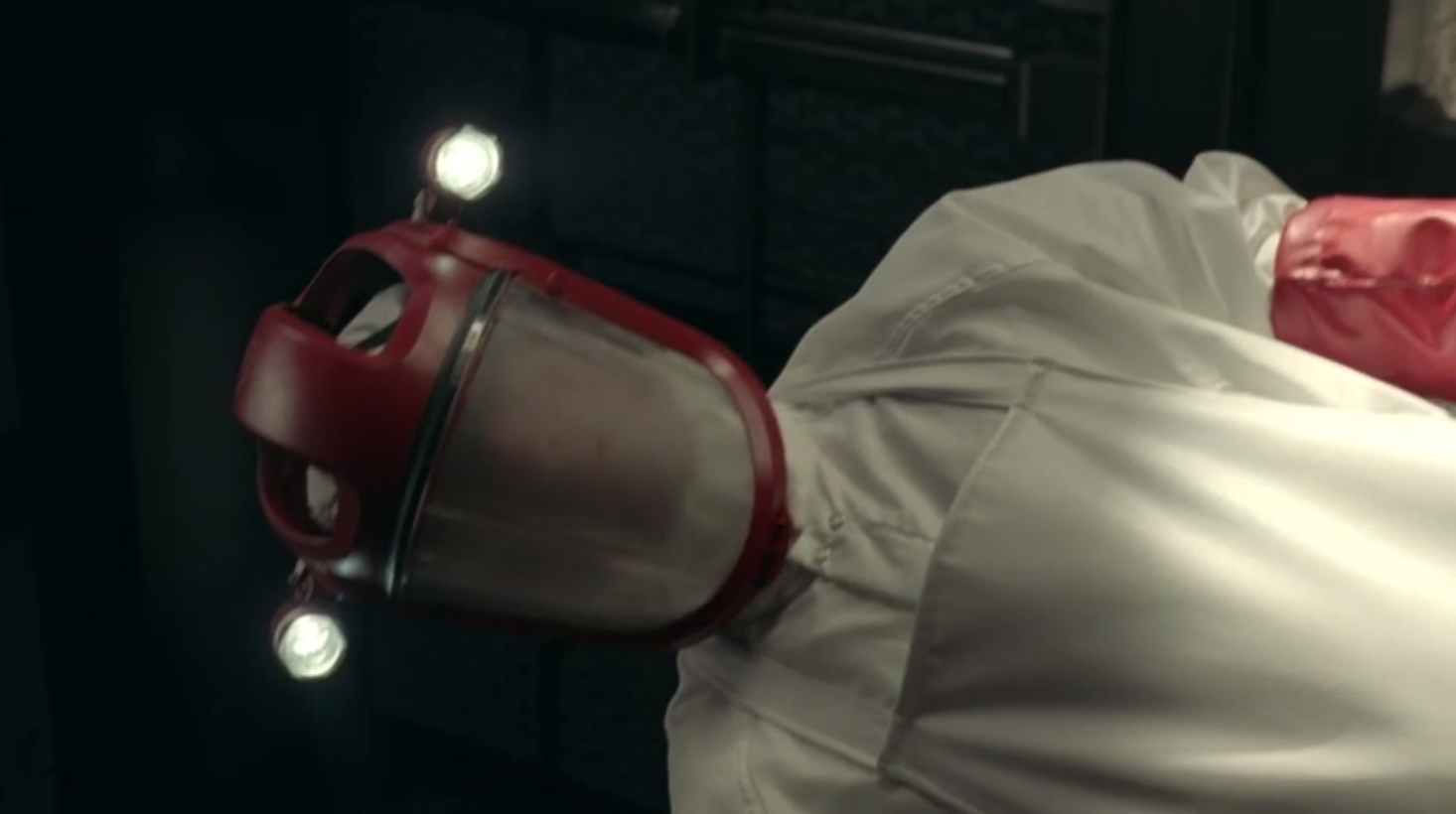
Chris Avellone:
I think the premise was easy to accept back in the 1970s with the movie. Most people I talk to quote Red Dead Redemption as making the show easy to accept as it stands.
Eric Holmes:
You know, before the show came on, I rewatched some of the original movie. It still works wonderfully well! In both cases, I feel that entering the world of the park was what made me believe. They bring you into the world bit by bit and give you the perspectives of each of the characters in it. I think that the grounded nature of the drama, the earnest values of the characters is what makes us believe, rather than the technological component. Then your mind starts spinning as soon as the possibilities of what users can do with the sort of “content” is built into the park.
I think that if anything, VR makes me ask questions about why it isn’t a VR driven experience. Clearly, the show is set in a semi-distant future, a future that has more advances in many areas beyond that of our world. It feels like a VR experience is an easier sell than flesh-and-blood simulated lifeforms and trying to make the budget of that work! That could just be my own developer issues talking, though…
What kind of game would you make/recommend for the Man in Black?
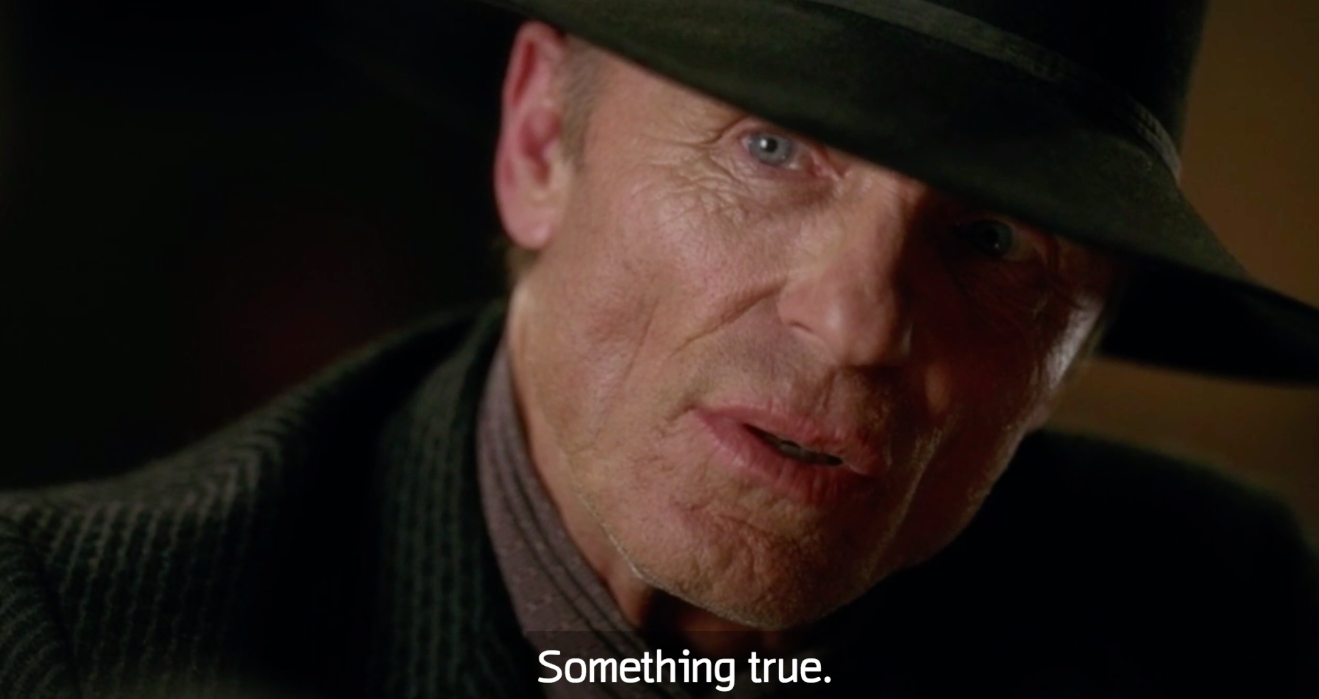
Chris Avellone:
The Stanley Parable, or I’d ask him to go find a mod that disables friendly fire or, better, write his own game instead.
Sean Vanaman:
I met wackos like this guy playing Day Z, so, I guess that [game]. He should meet the guy who robbed me, tied my hands together and fed me rotten fruit every time I tried to get away.
Eric Holmes:
He seems like a man who likes to go deep into the subject matter. He also seems uninterested in ethics, almost bored by them. It almost seems like he’s trying to “mod” the game in some way. So, I think I’d try to give him tools to change the game and see where he’d take it. Something less like Metal Gear and more like Minecraft.
Walt Williams:
Oh, I’d just give him Red Dead Redemption. He’s looking for something in himself. Some kind of purpose to his life and what he’s done and what he’s experienced. Red Dead Redemption is good for that, because — not to get fanboy here — but it is one of the few games that I feel has something to say, not just about its world but its character. It isn’t just, “Hey, this character is you and you’re great!”; it’s kind of exploring what it means to be a bad person and can you change that? And even if you can change it in yourself, is the world necessarily going to recognise what you’ve changed in yourself?
The Man in Black is looking for something in himself within [Westworld]. Anthony Hopkins calls it out when he says, “Far be it from me to get in the way of a journey of self-discovery.” That’s interesting because two episodes prior he says, “Players don’t want self-discovery. Players don’t want to know who they are. They already know who they are.” But he changes his opinion on that when talking to the Man in Black.
I have to believe that’s not sloppy writing? That there’s a meaning to that shift. But at the same time, as a man who has written a lot of stuff, it’s very possible it could be sloppy writing and just slipped through the cracks. The Man in Black wants to find the inner logic, the things that have been hidden. He’s the guy playing GTA 5 trying to find that fucking spaceship and get a jetpack. He wants games like Undertale. He wants games like Frog Fractions. He wants something weird and surprising and new that he can like cut open and get into the guts and see what’s hidden in there. He’s clearly someone who comes to this place to express a side of himself that he doesn’t express in the real world. He’s a man of obvious duality.
If you could, what would you change if you worked on something like Westworld?
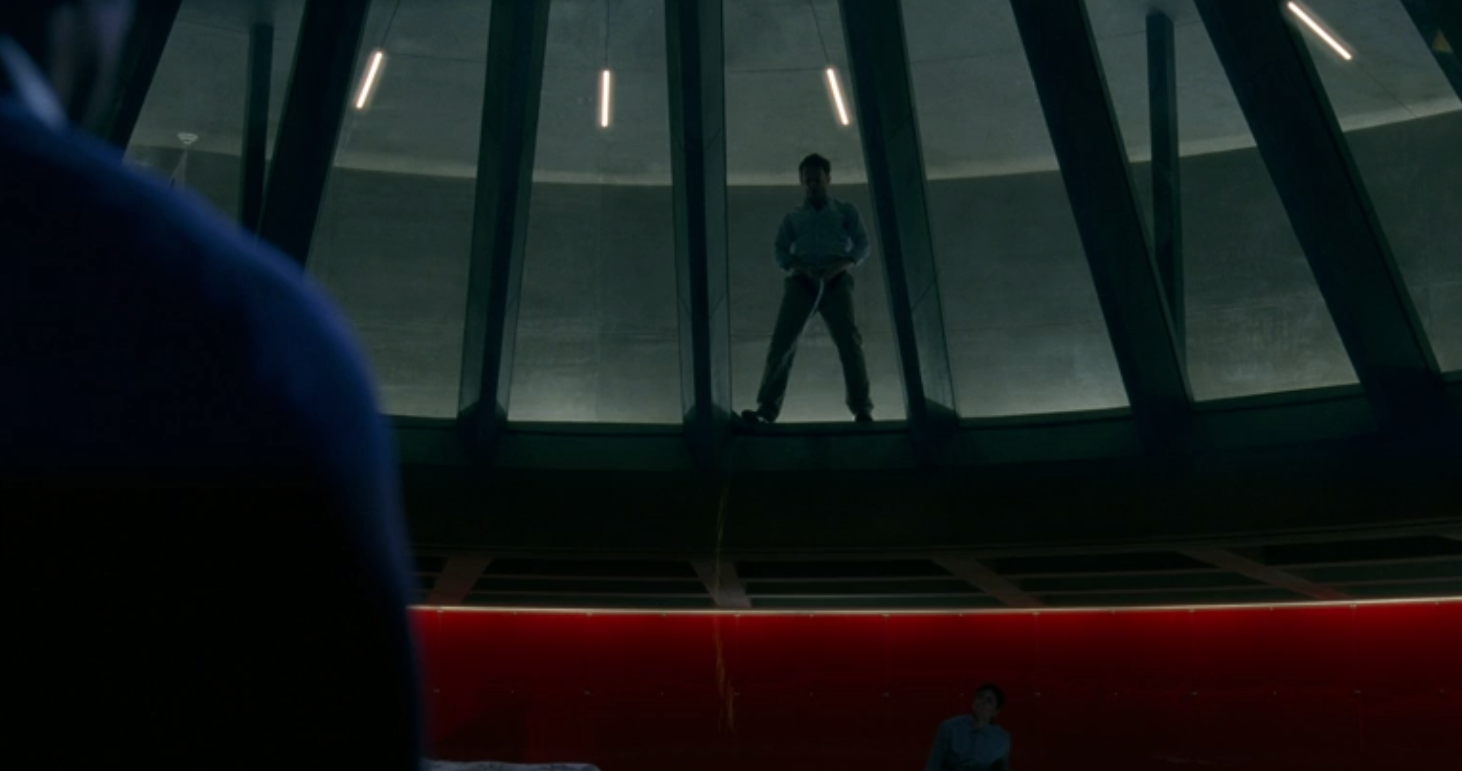
Walt Williams:
I think the real characters are the hosts. I think the humans are the ones who are not really changing. The hosts are the people who are the audience’s entry into the story. They’re the ones who are going to have the journey in this story. And I would have maybe focused on that. And it very well could shift that way as the story progresses. That it’s going to be as much about them coming into their own sentience as it is about the people outside. I think there is a preconceived notion that this is going to follow the film in some way. That all the robots are simply going to turn and start killing people, which I think there will certainly be some. But I think if that happens, that ruins a lot of what they’re doing right now — which is spending time watching these hosts become sentient and begin to recognise their own strange humanity. And what that means for them.
Chris Avellone:
I’d prefer Romeworld or Medieval World (from the original movie). A while ago, I joked about Game of Thrones invading Westworld, but I think I was only half-joking. I’d love to see a mash-up of two genres.
Sean Vanaman:
I would drastically change the premise in that Westworld is a gross male power fantasy. I don’t find power fantasies, especially patriarchal ones, very interesting to create (because we live in a real exhausting one). The idea that you could go to place and be totally convinced that you were there made me INSTANTLY want to visit a real Westworld and turn a blind eye to the premise of the park, but I think the moment the murder and the rape started I’d be pulling the rip-cord.
Eric Holmes:
The core of it is human interaction and I think we’re all working on something like that every day as people. The thrills of watching Westworld are somewhat similar to the thrills of Blade Runner/Do Androids Dream of Electric Sheep. “If they’re not people — but they seem just like them — are the rules that govern our interactions different? What makes a person a real human?”
The value I get here is [thinking about] who users “really” are underneath and how do their personal values change when they are in a world where things don’t seem to matter. That is the most fascinating component of it all. It’s almost as if they’re Greek gods walking around the mortals of a lower plane, toying with them and many not caring.
What would I change? I think the setting is something unique to Westworld. But there was Roman World and Medieval World in the original [movie], wasn’t there? Settings as different seasons of the show are an interesting idea, but I’d love to find some way to dig into the moral part of the design.
There’s a ton of potential to do something absolutely loopy with a world that you create and characters that you are literally surgically constructing. I’d like to do something impossible rather than just something historical. Let’s go for a cruise through Terry Gilliam’s imagination or Stephen King’s wildest dreams. I would love to use the tools and technology to create a completely different reality with its own rules. And in doing so, create something that incorporates the ethical component more deeply into the experience.
Do you think there’s any IRL game that gets at the moral conundrums raised by the show?
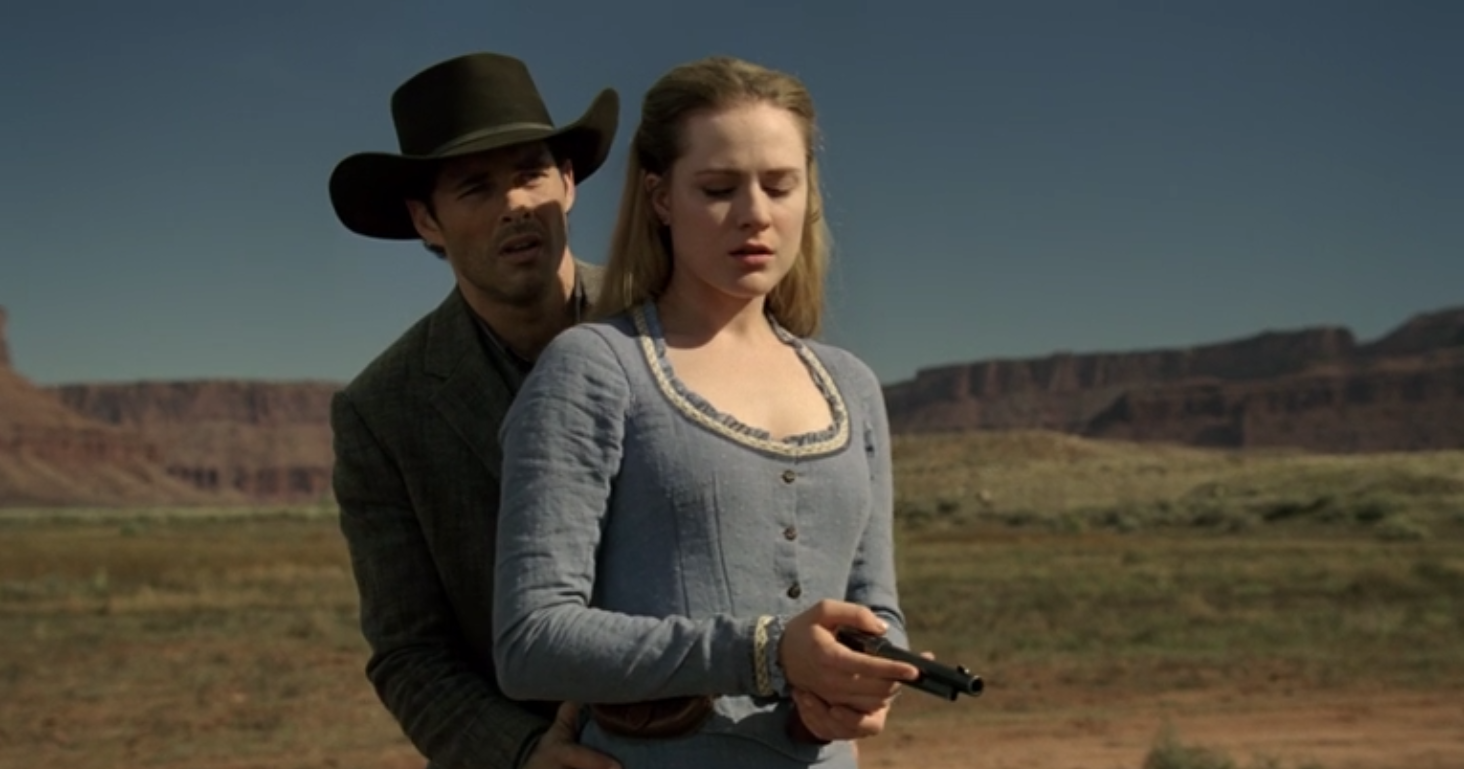
Walt Williams:
No. I don’t. I think we get close. Moral choice mechanics in games — players like when “good thing”/”bad thing” can happen to a character — aren’t about the world. They’re always very much about just the player. Westworld is a little similar in that, for the people in the park, everything is about them and their moral choices are about the people making them. But where Westworld separates itself from what we do in games, is that it’s treating the NPCs as actual things. Games haven’t come that far in thinking about the worlds that we’re creating as real worlds that exist outside of something to serve the player’s desires. Our moral choices are simply something that have been waiting there for the player to come across and decide whether they want to be a bad person or a good person.
The NPCs in Westworld have these real emotional stakes that are happening for them, and when certain things change in their storyline, the tumblers that have been built into them begin to fall into place and move into different AI paths. And we don’t have that yet. A moral choice that you make in one game isn’t necessarily going to set off these ripples throughout the entire story and change them. Because, for one, it’s extremely difficult to pull off. But also I think we’re interested in that from an ego standpoint of, “Look what we were able to accomplish.”
At the end of the day, we try to make games that embrace the player. We believe that the player is the ultimate power and guiding force in these worlds. Which is interesting, because no other art does that. It’s clear that Anthony Hopkins believes he’s the person that matters. His vision matters in Westworld. And everyone else is just paying him to [be allowed to] walk around him. He’s letting them play. Whereas we very much design our games as… “This is about you, and we’re gamers, too. So we’re thinking about…” I don’t like that. It’s weird. To, like, write ourselves off as creators of our own worlds and then… I feel like that gets shown in our NPCs, that they also come across as just animatronics just standing around waiting for you to show up.
We feel like if we’re going to be big in concept and design, the world has to be big, too. We just don’t have the bandwidth, resources, or disc space to do that. Like, the project I’m working on right now? I’m having so many issues just getting five more minutes of cinematics. Cause we just don’t have the disc space.
It’s like, what kind of writer or bookmaker is like, “Sorry man, I don’t know what to tell you. There’s not enough room.” I think we could make something that has the depth of the AI of Westworld if we could convince ourselves that it’s OK to be systemically robust but have our scope be drastically decreased. If you took a game like GTA V or the things I imagine Rockstar are going to do with Red Dead Redemption 2 and scoped it down to a city of five square blocks and a finite amount of people, you could do an amazingly detailed simulation. Of these people’s lives, and what they’re doing, and really work with, “Well, if I did this to this character, that’s going to spread out.” But at the same time, you’re not going to sell that. You’re not going to sell a hundred million copies.
Sean Vanaman:
Day-Z posed some of those conundrums for me. Watching player behaviour in the Arma-3 mod “Altus Life”. I get some of the same “OH NO WHAT DO I DOOOO” out of playing Rimworld, too.
Which sidequest NPC, from a game you’ve worked on or enjoyed, would you be most excited/afraid of encountering with its own free will?
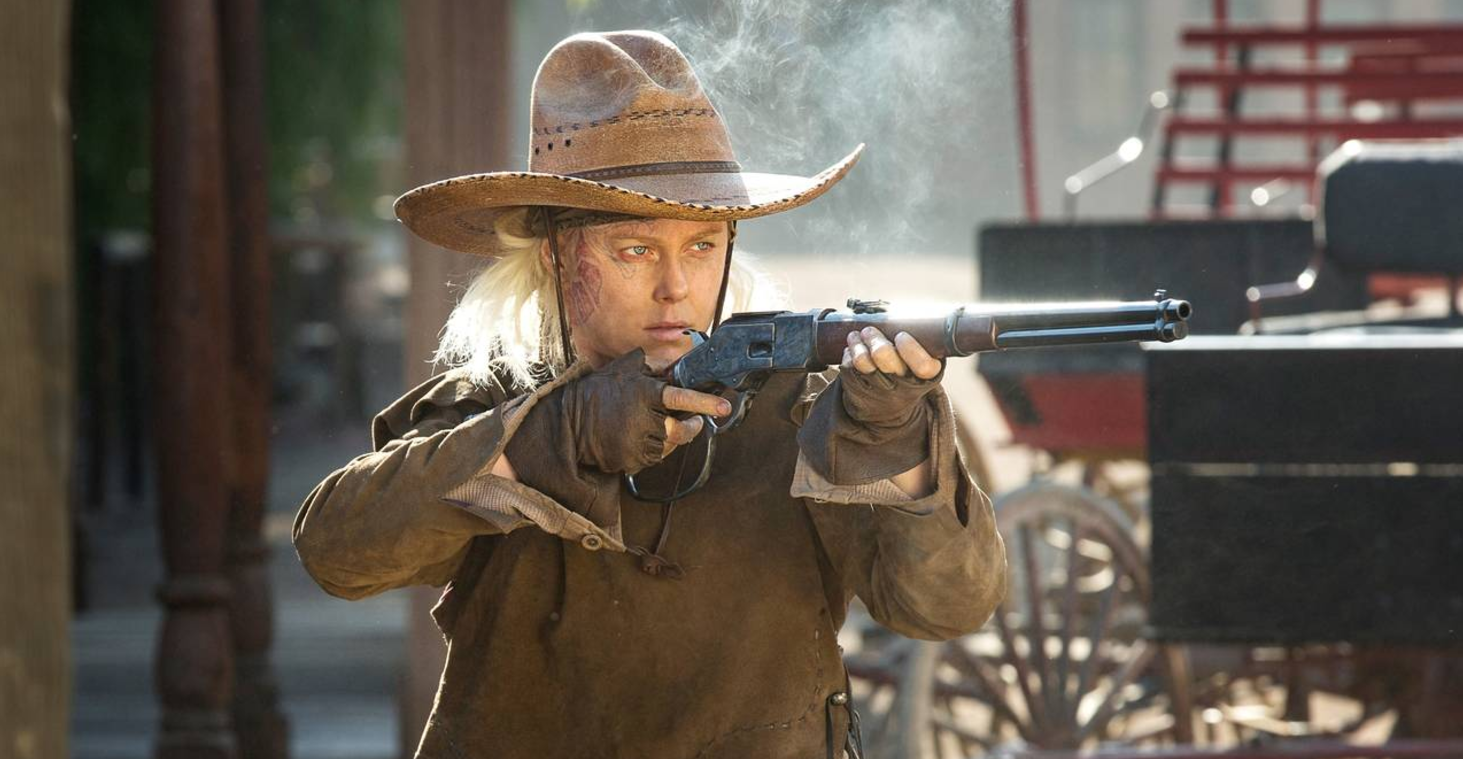
Eric Holmes:
It’s always about the villains for me. Going to have to go with Pyramid Head. I picture him in the cat reading newspaper meme, going, “I should buy a boat.”
Walt Williams:
Oh God… probably any character I’ve ever written. I have a feeling none of them would be very happy with me. I’ve kinda had a string of fucked-up stories. For me, Adams is the only noble character in Spec Ops and, if I could still unfuck him today, I would. He was the guy who deserved something at the end of all of it.
Chris Avellone:
HK-47 from KOTOR1, Kreia from KOTOR2, Ulysses from Fallout: New Vegas, and Andrew Ryan from BioShock. Of course, SHODAN and GLaDOS would trump all of them.
Sean Vanaman:
Oh my God, literally anyone from The Walking Dead season 1 or 400 Days. Holy moley — and the disturbing thing is that TWD, other than the zombies, is NOT a fantasy — the humans are ostensibly recreations of the type of people you meet and know in the real world who are reacting to this terrible thing.
Actually, scratch that: Toad from Mario really gives me shpilkes. He’s all yacked-out and high energy. I don’t respond well to that. Man, there was this sidequest in Super Mario RPG, Toadofsky, that combined that [energy] with music patterns, which is basically my waking hell. So, yeah, Toadofsky.
